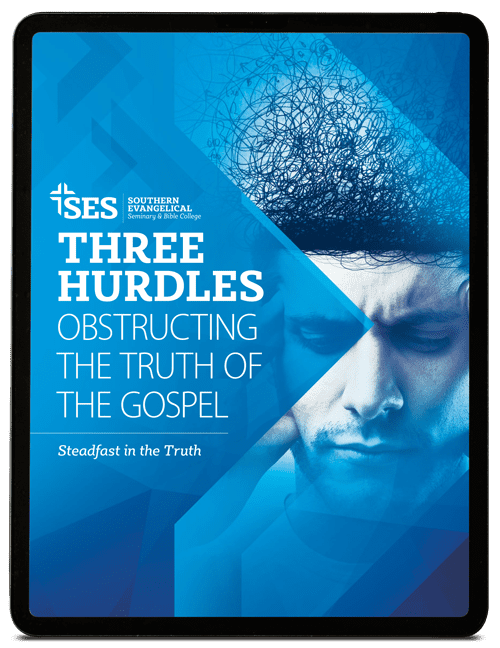I debated the topic “Did Jesus Die For All Men Without Exception?” with my friend Sonny Hernandez of Reforming America Ministries. This article is an adaptation of my opening statement in that debate.
I have held to limited atonement and unlimited atonement. The transition was long and thoughtful. The reason I currently hold to unlimited atonement is because there are certain passages of Scripture that seem to me to teach the Jesus died for every single person, such as 1 John 2:2. Before moving on I think it is important to explicitly state what this issue is about and what it is not about. It is about the extent of the atonement, that is, who did Jesus die for, the elect only or every human who has ever lived? My position is the latter. This is a separate issue than the intent of the atonement. While the extent of the atonement is the scope of Christ’s death, the intent of the atonement is the purpose of Christ’s death. I am not an Arminian. I do not maintain that Christ intended to save every person without exception. I do not believe that Christ simply made everyone savable and does not secure the salvation of the elect. That God is sovereign is not up for debate. I uphold God’s sovereignty, predestination, and election. This issue is also not about free will. Free will is related to this debate, but one’s view of free will does not determine the scope of the atonement. This issue is also not about the role of grace.
Let me make my use of terms clear. By ‘limited atonement’ I mean that a limited number of people had their sin imputed to Christ. In other words, only a limited number of people had their sins forgiven. By ‘unlimited atonement’ I mean every person without exception had their sin imputed to Christ and their sins are paid for. The extent of the atonement is the scope of the atonement, while the intent of the atonement is its purpose in saving those whom he wanted to save. The ‘application’ or ‘appropriation’ of the atonement refers to the benefits of Christ’s death applied to the sinner, which results in salvation. My position is that the extent of the atonement is universal while the intent of the atonement is for the elect. That is, only the elect, those who believe in Jesus’ person and work, will be saved. Notice that the extent and the intent are different. Only those who believe enjoy the application of the benefits of the atonement. I deny that all without exception will be saved because all without exception do not believe. Both the atonement and belief are necessary for salvation. Finally, I will use the term ‘limitarian’ to refer to those who hold to limited or what is often termed ‘particular’ atonement. By ‘universalist’ I will mean those who hold to a universal view of the atonement, not to those who believe that all will be saved.
Historical Considerations
This debate is going to be decided on scriptural grounds. Even if every church father held to a given theory that in itself would not make the theory right. However, a certain amount of credibility is given to a theory based on those who held to it. Certainly it is the case that each side will claim that history is on his side. Obviously such cannot be the case. While I am not a church historian, those who practice church history write that this issue was not a major one until the 16thcentury. Robert Lightner states, “The extent of the atonement was not much of an issue until the sixteenth-century Reformation. Up until that time, the prevailing and mostly undisputed view of Christ’s death was that it was a provisionary sacrifice for all of humankind, salvific only for those who believed.”[1] David Allen agrees, saying,
There is little debate on the issue of the extent of the atonement during the patristic period, with the exception of Augustine. Some Calvinists are prone to argue that he espoused limited atonement. In the patristic era, it is clear from the writings of the Fathers that they understood the Scriptures to affirm that Christ’s death satisfied for the sins of all mankind, but only those who believe will receive the benefits of Christ’s death.[2]
Limitarian Michael Haykin admits that “the fathers of the ancient church did not espouse a full-orbed doctrine of definite atonement.”[3] In his chapter in From Heaven He Came and Sought Her, a compilation of scholars arguing for limited atonement, he uses the following words to describe the writings of the early church as it relates to this view: “hint,” “imply,” noting that some texts he uses to argue for limited atonement are “not unambiguous,” but are “indicative” of the view. Even regarding Augustine he states that we have texts that “imply” and offer “strong hints” of limited atonement. Similar statements are made of the medieval church. Peter Lombard who has made the now famous “sufficient / efficient” distinction is said to be “consistent” with limited atonement. Regarding Thomas Aquinas we are told, “we see a pattern that follows a trajectory leading in the direction of the doctrine of definite atonement.”[4]
The Patristics and Augustine
Augustine clearly taught that Judas was atoned for when he declares,
For he threw down the price of silver, for which by him the Lord had been sold; and he knew not the price wherewith he had himself by the Lord been redeemed. This thing was done in the case of Judas. But when we see that there is a sort of measure of requital in all men, and that not any one can be suffered to rage more than he hath received power to do: how have they ‘added,’ or what is that smiting of the Lord?[5]
Further, he says: “For with righteousness shall He judge the world:” not a part of it, for He bought not a part: He will judge the whole, for it was the whole of which He paid the price.[6] David Allen avers:
From these quotations we may draw several conclusions. First, in numerous places, Augustine spoke of the atonement as being ‘for the sins of the world’ with no restrictive qualification of the meaning of ‘world.’ Second, Augustine affirmed universal atonement but also made it clear that the application is only to those who believe. Third, Augustine’s view of predestination did not lead him to limit the atonement only to the elect. Fourth, it is clear that Augustine thought that Jesus redeemed Judas. Such a statement could not be made by one who affirmed limited atonement, since Judas was clearly among the reprobate. Fifth, there is no explicit statement in Augustine’s writings that the death of Christ is limited only to the elect.[7]
Allen adds, “Raymond Blacketer,” a limitarian, “correctly noted that ‘there is no single statement from the bishop of Hippo that explicitly declares that God’s intention in the satisfaction of Christ was to procure redemption for the elect alone.’”[8] Also, limitarian Henri Blocher, states, “Augustine’s case is complex, and no unified doctrine of atonement stands out clearly in his writings.”[9] In short, Allen notes,
In the entire patristic era there is only one name that can be marshalled in support of limited atonement, and then only in a very tentative and temporary way. In his History of the Councils of the Church, Hefele said, as a result of the fifth-century Council of Arles, Lucian, who had leaned toward limited atonement, changed his views to unlimited atonement.[10]
The Medievals
The first person to ever explicitly hold to limited atonement was Gottschalk. J. V. Fesko declared, “it is the first extant articulation of a definite atonement in church history.”[11]
Peter Lombard in the 12th century coined the now famous sufficiency / efficiency formula. By this he meant that Christ’s death was actually sufficient for all but efficient for the elect alone. In other words, Christ died for all but only the elect benefited since only they believe. Limitarians, notably Theodore Beza and John Owen, have changed what is meant by this statement to mean that Christ’s death was hypothetically sufficient for all but only efficient for the elect. Allen notes that this distinction is “the key debate” regarding the extent question.[12]
John Calvin
It is certainly the case that both camps in this debate claim Calvin for themselves. I do not have time to engage in a lengthy discussion on this historical point. However, I will offer some proof that he held to unlimited atonement. Speaking of Isaiah 53:12 he states, “Yet I approve of the ordinary reading, that he alone bore the punishment of many, because on him was laid the guilt of the whole world. It is evident from other passages, and especially from the fifth chapter of the Epistle to the Romans, that ‘many’ sometimes denotes ‘all.’”[13] Commenting on Matthew 26:!4 he says, “The bare mention of the burying ought to have softened a heart of iron; for it would have been easy to infer from it, that Christ offered himself as a sacrifice for the salvation of the human race.”[14] Then talking about John 1:29 he declares, “And when he says, the sin of the world, he extends this favour indiscriminately to the whole human race . . .”[15] In the Institutes he declares, “And the first thing to be attended to is, that so long as we are without Christ and separated from him, nothing which he suffered and did for the salvation of the human race is of the least benefit to us.”[16] Even speaking of John Calvin Paul Helm, a limitarian, admits, “while Calvin did not commit himself to any version of the doctrine of definite atonement, his thought is consistent with that doctrine; that is, he did not deny it in express terms, but by other things that he most definitely did hold to, he may be said to be committed to that doctrine.”[17]
Even the Canons of Dort do not explicitly teach limited atonement. Many scholars recognize that the Synod of Dort did not settle the issue of the extent of the atonement. G. M. Thomas explains that the Canons deliberately left the issue of the extent of the atonement ambiguous so that delegates who held to universal atonement, such as John Davenant, could sign it.[18] Limitarian Lee Gatiss notes, “Yet for tactical, political, or other reasons, Reformed Hypothetical Universalism was allowed to prevail among the British delegation, and to exert some influence on the Synod.”[19] David Allen further states: “Historically, sometimes people on either side of the aisle try to claim Dort as advocating their view. This is especially the case with limitarians. Strictly speaking, neither moderates nor high Calvinists can make such a claim since the final canons leave a certain deliberate ambiguity on the issue.”[20]
As previously mentioned, historical corroboration does not settle this question. However, if one side of the debate is hardly represented by the first millennium and a half it certainly does raise questions to the theory’s credibility. This debate will be ultimately decided on biblical grounds and it is to that arena that we now turn.
Biblical Considerations
First I will give typical passages offered in favor of limited atonement and offer a general response. Then I will offer typical passages for unlimited atonement.
Passages Offered in Favor of Limited Atonement
The following passages are usually marshaled for limited atonement. Matthew 1:21, “She will bear a son, and you shall call his name Jesus, for he will save his people from their sins.”
Passages are often used that talk about Christ dying for “many,” such as in Matthew 20:28, which reads: “the Son of Man came not to be served but to serve, and to give his life as a ransom for many.” John 10:15 says, “I lay down my life for the sheep.” This is supposed to teach that Jesus laid down his life for the sheep only. Paul says in Ephesians 5:25, “… Christ also loved the church, and gave himself for it.” Acts 20:28 states, “Take heed therefore unto yourselves, and to all the flock … to feed the church of God, which he hath purchased with his own blood.”Such passages are said to teach that Christ died only for his people, or only for the Church. Limitarians argue that since the atonement is in reference to “his people” and “the church,” and other such variations, that he died only for them. However, such thinking is logically fallacious. To say that such Scriptures as Christ died “for his people” or “the church” demonstrate that he died for them only commits the negative inference fallacy. This fallacy is committed when one says that given the truth of a claim we can infer the negative of that claim. We cannot infer from statements like Christ died for his people or the church that he died only for them. If we could, then it could be argued that Christ died only for Paul since he says in Galatians 2:20, “And the life I now live in the flesh I live by faith in the Son of God, who loved me and gave himself for me.” Limitarians obviously do not want to maintain such a conclusion; however, it is consistent with their logic. Robert L. Reymond, himself a limitarian, admits:
It is true, of course, that logically a statement of particularity in itself does not necessarily preclude universality. This may be shown by the principle of subalternation in Aristotelian logic, which states that if all S is P, then it may be inferred that some S is P, but conversely, it cannot be inferred from the fact that some S is P that the remainder of S is not P. A case in point is the ‘me’ of Galatians 2:20: the fact that Christ died for Paul individually does not mean that Christ died only for Paul and for no one else.[21]
D. A. Carson, another limitarian states, “It does not necessarily follow that if a proposition is true, a negative inference from that proposition is also true. The negative inference may be true, but this cannot be assumed, and in any case is never true because it is a negative inference.”[22] Jonathan Gibson in his chapter in From Heaven He Came and Sought Her admits:
The argument put to the proponents of definite atonement, however, is that the particularistic texts do not in themselves rule out Christ making atonement for the non-elect. To infer such is to commit the negative inference fallacy. The fact that Paul can say ‘the Son of God who loved me and gave himself for me’ (Gal. 2:20) does not militate against Paul also affirming Christ’s death for the church (Acts 20:28; Eph. 5:25). In turn, Paul’s affirmation of Christ’s death for the church does not cancel out statements regarding Christ’s death for ‘many,’ for ‘all,’ or for the ‘world’ (e.g., Rom. 5:15; 1 Tim. 2:6; 2 Cor. 5:19, respectively). Scripture nowhere states that Christ died for the elect alone or for them only. This kind of argumentation is, prima facie, entirely fair.[23]
Such argumentation as, “Christ died for his people” to “Christ died for only his people,” is thus logically fallacious even according to limitarians.
But are there other Scriptures that limitarians can use that teach limited atonement? My argument is that Scripture nowhere explicitly teaches limited atonement. In fact, many who hold to limited atonement strangely agree. In the last quote from Gibson we heard his admission that
Scripture nowhere states that Christ died for the elect alone or for them only.” In that same work, Paul Williamson admits, “Having said this, however, a closer look at this biblical corpus, including the specific texts mentioned above, will demonstrate that while definite atonement is nowhere explicitly mentioned, there are certainly hints of the concept embedded within this body of literature.[24]
Henri Blocher, in that same work, says, “Piecemeal exegesis does not yield a clear-cut answer to the choice between definite atonement and Hypothetical Universalism. The evidence must be ‘digested’ by theological reflection. Scripture remains norma normans, but must be intelligently taken as a structured whole.”[25] Again from that work, David Hogg notes, “When considered as a whole, Peter’s theology is consistent with later articulations of definite atonement despite the fact that the technical terms and language used to express definite atonement theology lay in the future.”[26] Finally, Gibson admits what is my main point: that limited atonement is not a strictly biblical doctrine but a conclusion of a theological system. He admits,
Definite atonement, carefully and properly understood, is not a biblical doctrine per se, nor even a systematic doctrine per se; rather, definite atonement is a biblico-systematic doctrine. That is to say, the doctrine of definite atonement emerges from holding together various soteriological texts while at the same time synthesizing internally related doctrines, such as eschatology, election, union with Christ, christology, Trinitarianism, doxology, covenant, ecclesiology, and sacramentology. Definite atonement is a theological conclusion reached on the other side of comprehensive synthesis.[27]
Such is a startling admission from people who hold to limited atonement. Limitarians thus make my point: limited atonement is not ever explicitly stated in Scripture, nor is it even strictly a biblical doctrine. There are, of course, other passages and ways of arguing for limited atonement from the Bible. But all other ways rely on analogies, implications, or inferences. Nowhere does the Bible explicitly teach limited atonement. Lewis Sperry Chafer, speaking of Calvinists who hold to unlimited atonement, remarks,“This form of moderate Calvinism is more the belief of Bible expositors than of the theologians, which fact is doubtless due to the truth that the Bible, taken in its natural terminology and apart from those strained interpretations which are required to defend a theory, seems to teach an unlimited redemption.”[28] However, Scripture on over a dozen occasions does explicitly state that Christ died for all, every person, or the whole world.
Passages Offered for Universal Atonement
While there are many passages that teach a universal atonement, I will only provide a sampling. After listing several I will focus on three. In John 1:29 John the Baptist stated, “Behold, the Lamb of God, who takes away the sin of the world!” John 3:16 says, “For God so loved the world, that he gave his only Son, that whoever believes in him should not perish but have eternal life.” Second Corinthians 5:18-20 reads,
All this is from God, who through Christ reconciled us to himself and gave us the ministry of reconciliation; 19 that is, in Christ God was reconciling the worldto himself, not counting their trespasses against them, and entrusting to us the message of reconciliation. 20 Therefore, we are ambassadors for Christ, God making his appeal through us. We implore you on behalf of Christ, be reconciled to God.
First Timothy 2:3-6 says, “This is good, and it is pleasing in the sight of God our Savior, who desires all people to be saved and to come to the knowledge of the truth. For there is one God, and there is one mediator between God and men, the man Christ Jesus, who gave himself as a ransom for all, which is the testimony given at the proper time.” This is a very clear passage that Jesus gave himself as a ransom for all. Thomas Schreiner admits, “Clearly, we have the idea of Christ’s substitutionary sacrifice, where he gives his life as a ransom for the sake of others.”[29] But it simply strains the text to claim that “all” here means the elect only.
First John 2:2 states, “He is the propitiation for our sins, and not for ours only but also for the sins of the whole world.” The word ‘world’ is ‘kosmos’ and occurs 23 times in this epistle. The very next occurrence is in 13 verses later and says, “Do not love the world . . .” The next verse says that “all that is in the world—the desires of the flesh and the desires of the eyes and pride of life—is not from the Father but is from the world” (v. 16). Frist John 3:1 states, “The reason why the world does not know us is that it did not know him.” 3:13 says, “Do not be surprised, brothers, that the world hates you.” This can’t be referring to the elect because earlier in this epistle John said that if we don’t love the brethren then the love of the Father is not in us. If this were the elect they would not be in this position of hating the other elect. 4:4 states, “Little children, you are from God and have overcome them, for he who is in you is greater than he who is in the world.” Obviously this is contrasting the world and the elect. 4:14 exhorts, “And we have seen and testify that the Father has sent his Son to be the Savior of the world.” 5:4 claims, “For everyone who has been born of God overcomes the world. And this is the victory that has overcome the world—our faith.” It would be absurd to teach that the elect overcomes the elect. Finally, 5:19 says, “We know that we are from God, and the whole world lies in the power of the evil one.” John is not saying that the elect lie in the power of the evil one. My point is this: it seems overly clear that John uses the term ‘kosmos’ in a very negative way in this epistle. In fact, I don’t think he ever uses it in a positive way. Thus, the natural way to interpret the meaning of ‘world’ in 2:2 is to see how he uses the term in the rest of this work and his other works. Since he only and always uses the word ‘world’ to refer to people in a negative way, 2:2 should be understood in that way too. In fact that is the natural reading. Thus, to say that ‘world’ in 2:2 means elect while the other passages that use this word obviously don’t commits the logical fallacy of special pleading. First John 2:2 teaches that Christ died for all without exception.
Second Corinthians 5:14-15 says, “For the love of Christ controls us, because we have concluded this: that one has died for all, therefore all have died; 15 and he died for all, that those who live might no longer live for themselves but for him who for their sake died and was raised.” Hebrews 2:9 declares, “But we see him who for a little while was made lower than the angels, namely Jesus, crowned with glory and honor because of the suffering of death, so that by the grace of God he might taste death for everyone.” First Timothy 4:10 teaches, “For to this end we toil and strive, because we have our hope set on the living God, who is the Savior of all people, especially of those who believe.”
The last passage I will look at proves that Jesus died for people who were bought by him and yet they rejected him. Second Peter 2:1 says, “But false prophets also arose among the people, just as there will be false teachers among you, who will secretly bring in destructive heresies, even denying the Master who bought them, bringing upon themselves swift destruction.” Thus, Christ bought some and yet denied him, demonstrating that not all for whom he died are elect. This verse is a serious problem for limitarians. In From Heaven He Came And Sought Her, Thomas Schreiner recognizes that the word bought here must have a soteriological meaning. His interpretation, however, shows the desperate attempts by some to save limited atonement from texts such as this. He declares, “I suggest there is: Peter’s language is phenomenological. In other words, it appeared as ifthe Lord had purchased the false teachers with his blood (v. 1), though they actually did not truly belong to the Lord.”[30] Such offers a very strained interpretation of this text, for sure. The text says that Jesus bought these people, not that he seemed to have bought them.
Conclusion
Speaking of John 1:29, John 3:16, and 1 Tim. 2:4-6, David Allen exhorts that these passages, and many others like them
simply cannot be shackled with the limiting lexical chains that restrict the meaning of “world” and “all” to something less than all humanity. This is a huge linguistic mistake. As many Calvinists have rightly pointed out, “world” in Scripture never means “the elect.” Context usually makes it clear whether “all” or “world” means “all without exception” or whether the focus is on all classes of people, which would still include all without exception. It is simply not exegetically possible to interpret “all” and “world” in the three texts listed above, and several others, in a limited fashion.[31]
Allen is right. Limitarians must maintain that each and every single one of these passages, and all like them, teach that when the words “all,” “every,” and “whole world” are used they only refer to the elect. But such a position goes against the plain meaning of language. It is hard to understand how anyone without a preconceived notion would read all of these passages and conclude that they don’t refer to all people, everyone, or the whole world. The NT writers were not trying to referee a debate about the extent of the atonement. The Bible is not a systematic theology textbook. It is a collection of books written by normal people who were inspired by God to write letters to normal people in normal language.
It should be noted that if words like “all,” “every,” and “the whole world” don’t refer to all people, then no words can. We have to ask ourselves a question: if the NT authors hypothetically wanted to say that Christ died for every person without exception, how would they do it? They would use universal terms like those we just saw. However, limitarians teach that such words while universal only refer to a particular group: the elect. So how could the NT authors refer to everyone without exception if they wanted to without limitarians limiting those words to the elect? It seems like there is no way possible! My point is this: the limitarian position is unfalsifiable if universal words can’t be proof for a universal atonement. In other words, if universal words still refer to a limited group of people, then there is no way even in principle of disproving limited atonement! Universal words are the only way to refer to a universal atonement. So if universal terms, which are used many times in the NT to refer to the atonement don’t actually teach universal atonement, then there is no way even in principle that the NT authors could teach a universal atonement even if they wanted to.
[1]Robert P. Lightner, The Death Christ Died: A Biblical Case for Unlimited Atonement(Grand Rapids, MI: Kregel Publications, 1998), 9.
[2]Allen, David L. The Extent of the Atonement: A Historical and Critical Review (Kindle Locations 536-539). B&H Publishing Group. Kindle Edition.
[3]Michael A. G. Haykin, “‘We Trust in the Saving Blood’: Definite Atonement in the Ancient Church,” in From Heaven He Came and Sought Her: Definite Atonement in Historical, Biblical, Theological, and Pastoral Perspective, ed. David Gibson and Jonathan Gibson (Wheaton, IL: Crossway, 2013), 74.
[4]David S. Hogg, “‘Sufficient for All, Efficient for Some’: Definite Atonement in the Medieval Church,” in From Heaven He Came and Sought Her: Definite Atonement in Historical, Biblical, Theological, and Pastoral Perspective, ed. David Gibson and Jonathan Gibson (Wheaton, IL: Crossway, 2013), 90 (emphasis added).
[5]Augustine of Hippo, “Expositions on the Book of Psalms,” in Saint Augustin: Expositions on the Book of Psalms, ed. Philip Schaff, trans. A. Cleveland Coxe, vol. 8, A Select Library of the Nicene and Post-Nicene Fathers of the Christian Church, First Series (New York: Christian Literature Company, 1888), 309.
[6]Augustine of Hippo, “Expositions on the Book of Psalms,” in Saint Augustin: Expositions on the Book of Psalms, ed. Philip Schaff, trans. A. Cleveland Coxe, vol. 8, A Select Library of the Nicene and Post-Nicene Fathers of the Christian Church, First Series (New York: Christian Literature Company, 1888), 474.
[7]Allen, David L. The Extent of the Atonement: A Historical and Critical Review(Kindle Locations 858-863). B&H Publishing Group.
[8]Ibid., Kindle Locations 863-865.
[9]Henri A. G. Blocher, “Jesus Christ the Man: Toward a Systematic Theology of Definite Atonement,” in From Heaven He Came and Sought Her: Definite Atonement in Historical, Biblical, Theological, and Pastoral Perspective, ed. David Gibson and Jonathan Gibson (Wheaton, IL: Crossway, 2013), 549.
[10]Allen, Kindle Locations 941-943.
[11]Allen, Kindle Locations 986-987.
[12]Allen, Kindle Location 1068.
[13]John Calvin and William Pringle, Commentary on the Book of the Prophet Isaiah, vol. 4 (Bellingham, WA: Logos Bible Software, 2010), 131.
[14]John Calvin and William Pringle, Commentary on a Harmony of the Evangelists Matthew, Mark, and Luke, vol. 3 (Bellingham, WA: Logos Bible Software, 2010), 193.
[15]John Calvin and William Pringle, Commentary on the Gospel according to John, vol. 1 (Bellingham, WA: Logos Bible Software, 2010), 64.
[16]John Calvin, Institutes of the Christian Religion(Bellingham, WA: Logos Bible Software, 1997).
[17]Paul Helm, “Calvin, Indefinite Language, and Definite Atonement,” in From Heaven He Came and Sought Her: Definite Atonement in Historical, Biblical, Theological, and Pastoral Perspective, ed. David Gibson and Jonathan Gibson (Wheaton, IL: Crossway, 2013), 98.
[18]The Extent of the Atonement, 132-133ff.
[19]Lee Gatiss, “The Synod of Dort and Definite Atonement,” in From Heaven He Came and Sought Her: Definite Atonement in Historical, Biblical, Theological, and Pastoral Perspective, ed. David Gibson and Jonathan Gibson (Wheaton, IL: Crossway, 2013), 163.
[20]Allen, Kindle Locations 5186-5188.
[21]Robert L. Reymond, A New Systematic Theology of the Christian Faith(Nashville: T. Nelson, 1998), 673–674.
[22]D. A. Carson, Exegetical Fallacies, 2nd ed. (Carlisle, U.K.; Grand Rapids, MI: Paternoster; Baker Books, 1996), 101–102.
[23]Jonathan Gibson, “For Whom Did Christ Die?: Particularism and Universalism in the Pauline Epistles,” in From Heaven He Came and Sought Her: Definite Atonement in Historical, Biblical, Theological, and Pastoral Perspective, ed. David Gibson and Jonathan Gibson (Wheaton, IL: Crossway, 2013), 292.
[24]Paul R. Williamson, “‘Because He Loved Your Forefathers’: Election, Atonement, and Intercession in the Pentateuch,” in From Heaven He Came and Sought Her: Definite Atonement in Historical, Biblical, Theological, and Pastoral Perspective, ed. David Gibson and Jonathan Gibson (Wheaton, IL: Crossway, 2013), 228.
[25]Henri A. G. Blocher, “Jesus Christ the Man: Toward a Systematic Theology of Definite Atonement,” in From Heaven He Came and Sought Her: Definite Atonement in Historical, Biblical, Theological, and Pastoral Perspective, ed. David Gibson and Jonathan Gibson (Wheaton, IL: Crossway, 2013), 563.
[26]David S. Hogg, “‘Sufficient for All, Efficient for Some’: Definite Atonement in the Medieval Church,” in From Heaven He Came and Sought Her: Definite Atonement in Historical, Biblical, Theological, and Pastoral Perspective, ed. David Gibson and Jonathan Gibson (Wheaton, IL: Crossway, 2013), 89.
[27]Jonathan Gibson, “The Glorious, Indivisible, Trinitarian Work of God in Christ: Definite Atonement in Paul’s Theology of Salvation,” in From Heaven He Came and Sought Her: Definite Atonement in Historical, Biblical, Theological, and Pastoral Perspective, ed. David Gibson and Jonathan Gibson (Wheaton, IL: Crossway, 2013), 332.
[28]Lewis Sperry Chafer, Systematic Theology, vol. 3 (Grand Rapids, MI: Kregel Publications, 1993), 184.
[29]Thomas R. Schreiner, “‘Problematic Texts’ for Definite Atonement in the Pastoral and General Epistles,”in From Heaven He Came and Sought Her: Definite Atonement in Historical, Biblical, Theological, and Pastoral Perspective, ed. David Gibson and Jonathan Gibson (Wheaton, IL: Crossway, 2013), 379.
[30]Thomas R. Schreiner, “‘Problematic Texts’ for Definite Atonement in the Pastoral and General Epistles,”in From Heaven He Came and Sought Her: Definite Atonement in Historical, Biblical, Theological, and Pastoral Perspective, ed. David Gibson and Jonathan Gibson (Wheaton, IL: Crossway, 2013), 390.
[31]Allen, Kindle Locations 23129-23133.
Dr. Brian Huffling
Dr. Brian Huffling’s research interests include: Philosophy of Religion, Philosophical Theology, Philosophical Hermeneutics, and general issues in Apologetics and Biblical studies. See his personal blog here.

Download Your FREE eBook!
- Reading Books and Listening to Talks is Not Enough
- Not All Apologetics Methods Are Created Equally
- A Degree is More Than a Piece of Paper











